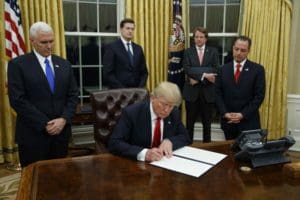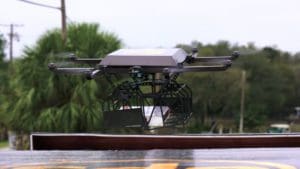 On Monday of this week, Kurt Cobain would have turned 50 years old. I remember being twelve years old and watching MTV with my 15-year-old brother the first time I heard Smells Like Teen Spirit in 1991. From the opening chords until the last note, I sat there with my mouth open, not quite sure of what I was listening to. All I knew was that it was a sonic experience, and different from anything I had ever heard. It was only years later that I realized I was having my “Beatles moment” with Nirvana. The band immediately become a favorite of mine, and I couldn’t believe how short-lived the run was. To this day, I still think Nirvana Unplugged is one of the greatest concert performances, mostly because it was such a departure from what everyone expected from the band. I would have loved to see where the band could have gone, but it was not to be. Happy 50th Kurt.
On Monday of this week, Kurt Cobain would have turned 50 years old. I remember being twelve years old and watching MTV with my 15-year-old brother the first time I heard Smells Like Teen Spirit in 1991. From the opening chords until the last note, I sat there with my mouth open, not quite sure of what I was listening to. All I knew was that it was a sonic experience, and different from anything I had ever heard. It was only years later that I realized I was having my “Beatles moment” with Nirvana. The band immediately become a favorite of mine, and I couldn’t believe how short-lived the run was. To this day, I still think Nirvana Unplugged is one of the greatest concert performances, mostly because it was such a departure from what everyone expected from the band. I would have loved to see where the band could have gone, but it was not to be. Happy 50th Kurt.
And now, on to the news.
- Trump administration considers change in calculating US trade deficit
- UPS testing drone deliveries
- FedEx, USPS extend air services pact through ’24
- Amazon lowers minimum for free shipping
- Walmart adds private label brands to Jet.com
- Record crop for New Zealand apples and pears
- Cass Freight Index Report indicates the freight recession appears to be over
 The Trump administration is reportedly changing the way that the US trade deficit is calculated. The big change is in how the country would calculate how goods imported into the US, and then re-exported, count towards trade. These items, namely cars, would not be counted as exports, which would make the trade gap appear larger than in previous years. For example, President Trump has often cited the $63.1 billion trade deficit with Mexico last year. Using the new calculations, that trade deficit would increase to $115.4 billion. This move would certainly align with his thoughts on how the US is being taken advantage of in most of its trade agreements, therefore setting the stage to rework or renegotiate current trade deals.
The Trump administration is reportedly changing the way that the US trade deficit is calculated. The big change is in how the country would calculate how goods imported into the US, and then re-exported, count towards trade. These items, namely cars, would not be counted as exports, which would make the trade gap appear larger than in previous years. For example, President Trump has often cited the $63.1 billion trade deficit with Mexico last year. Using the new calculations, that trade deficit would increase to $115.4 billion. This move would certainly align with his thoughts on how the US is being taken advantage of in most of its trade agreements, therefore setting the stage to rework or renegotiate current trade deals.
 UPS is the latest delivery company testing drone deliveries. Earlier this week, the company released a video of its first delivery completed via drone. The big news about this test is how the company will deploy drones. In the video, a UPS driver loads up the drone with a package to be delivered. The drone launches from a launch-pad on the truck’s roof, and delivers the package while the driver makes a separate delivery. The drone then returns to truck and lands on the roof. This is an example of a concept that will work in rural areas, where delivery locations are further apart. However, in an urban or densely populated area, this wouldn’t work, as the time it takes the driver to load up the drone would restrict the number of deliveries that can be made. It is certainly an interesting look into the practical reality of delivery drones.
UPS is the latest delivery company testing drone deliveries. Earlier this week, the company released a video of its first delivery completed via drone. The big news about this test is how the company will deploy drones. In the video, a UPS driver loads up the drone with a package to be delivered. The drone launches from a launch-pad on the truck’s roof, and delivers the package while the driver makes a separate delivery. The drone then returns to truck and lands on the roof. This is an example of a concept that will work in rural areas, where delivery locations are further apart. However, in an urban or densely populated area, this wouldn’t work, as the time it takes the driver to load up the drone would restrict the number of deliveries that can be made. It is certainly an interesting look into the practical reality of delivery drones.
 FedEx and the US Postal Service have extended their existing contract allowing FedEx to transport USPS packages. The current contract was signed in 2013, and was set for seven years. Even without the contract set to expire, the two companies have extended the contract through 2024. Under the contract, FedEx Express provides airport-to-airport deliveries of USPS’ “Priority Mail Express” and “Priority Mail” products, under which USPS provides one- to three-day deliveries of packages across the U.S. The contract generates about $1.5 billion in annual revenue for the FedEx unit.
FedEx and the US Postal Service have extended their existing contract allowing FedEx to transport USPS packages. The current contract was signed in 2013, and was set for seven years. Even without the contract set to expire, the two companies have extended the contract through 2024. Under the contract, FedEx Express provides airport-to-airport deliveries of USPS’ “Priority Mail Express” and “Priority Mail” products, under which USPS provides one- to three-day deliveries of packages across the U.S. The contract generates about $1.5 billion in annual revenue for the FedEx unit.
 Amazon has lowered its minimum spending threshold to receive free shipping from $49 to $35. This threshold applies to non-Prime members, and the minimum spending threshold for books remained at $25. This comes just a year after Amazon raised the spending threshold from $35 to $49. This move appears to be a direct result of Walmart ending its membership program and lowering its minimum spending threshold to $35 as well. However, an Amazon spokeswoman declined to comment on the reasons for the shift.
Amazon has lowered its minimum spending threshold to receive free shipping from $49 to $35. This threshold applies to non-Prime members, and the minimum spending threshold for books remained at $25. This comes just a year after Amazon raised the spending threshold from $35 to $49. This move appears to be a direct result of Walmart ending its membership program and lowering its minimum spending threshold to $35 as well. However, an Amazon spokeswoman declined to comment on the reasons for the shift.
 Speaking of Walmart, the company has rolled out a number of its private label brands on Jet.com. Since the two companies have merged online order fulfillment centers, Jet.com shoppers will see Great Value, Equate, and Sam’s Choice products on the site. The two companies will continue to operate as separate sites, and will cater to varying demographics, but the opportunity to cross-market and sell exists. With e-commerce still representing less than 5% of total revenues for Walmart, integrating the two sites makes more sense, as any cross-over opportunities can give Walmart some of the needed market share they are seeking to gain from Amazon.
Speaking of Walmart, the company has rolled out a number of its private label brands on Jet.com. Since the two companies have merged online order fulfillment centers, Jet.com shoppers will see Great Value, Equate, and Sam’s Choice products on the site. The two companies will continue to operate as separate sites, and will cater to varying demographics, but the opportunity to cross-market and sell exists. With e-commerce still representing less than 5% of total revenues for Walmart, integrating the two sites makes more sense, as any cross-over opportunities can give Walmart some of the needed market share they are seeking to gain from Amazon.
In the news recently, we have seen a lot about weather-related impacts on the fruit and vegetable supply chain. Well, New Zealand is not feeling the pinch of a dwindling supply. In fact, New Zealand is primed to set a new record for its apple and pear crop this season with the industry looking at a forecast of 584,000 tons. In 2012, the New Zealand government set a goal of doubling exports by 2025. In a four-year period, the apple industry has doubled the value of its exports to NZ$720m. Royal Gala accounts for around one-third of New Zealand’s apple exports.
And finally, the Cass Freight Index Report indicates that the freight recession appears to be over. For January, shipments were up 3.2 percent annually at 1.005 and down 6.4 percent compared to December. This follows a 3.5 percent annual gain in December, a 0.3 November decline, and a 2.7 percent gain in October, which marked the first time it headed up in the previous 20 months.
That’s all for this week. Enjoy the weekend, and the song of the week, Smells Like Teen Spirit by Nirvana.
















